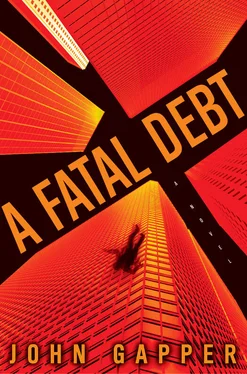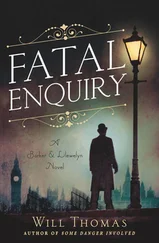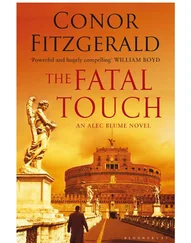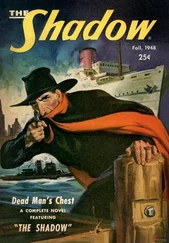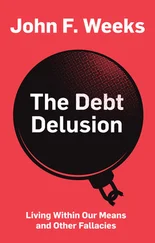John Gapper - A Fatal Debt
Здесь есть возможность читать онлайн «John Gapper - A Fatal Debt» весь текст электронной книги совершенно бесплатно (целиком полную версию без сокращений). В некоторых случаях можно слушать аудио, скачать через торрент в формате fb2 и присутствует краткое содержание. Жанр: Триллер, на английском языке. Описание произведения, (предисловие) а так же отзывы посетителей доступны на портале библиотеки ЛибКат.
- Название:A Fatal Debt
- Автор:
- Жанр:
- Год:неизвестен
- ISBN:нет данных
- Рейтинг книги:4 / 5. Голосов: 1
-
Избранное:Добавить в избранное
- Отзывы:
-
Ваша оценка:
- 80
- 1
- 2
- 3
- 4
- 5
A Fatal Debt: краткое содержание, описание и аннотация
Предлагаем к чтению аннотацию, описание, краткое содержание или предисловие (зависит от того, что написал сам автор книги «A Fatal Debt»). Если вы не нашли необходимую информацию о книге — напишите в комментариях, мы постараемся отыскать её.
A Fatal Debt — читать онлайн бесплатно полную книгу (весь текст) целиком
Ниже представлен текст книги, разбитый по страницам. Система сохранения места последней прочитанной страницы, позволяет с удобством читать онлайн бесплатно книгу «A Fatal Debt», без необходимости каждый раз заново искать на чём Вы остановились. Поставьте закладку, и сможете в любой момент перейти на страницу, на которой закончили чтение.
Интервал:
Закладка:
“You worked at Seligman?”
“Used to. I was pushed out last year by Marcus Greene, before Harry killed him.” He chuckled as if Harry had meted out retribution for him. “I wasn’t in Greene’s clique, eh? And I said some things he didn’t like, too loudly. But I was there long enough to be comfortable,” he said, waving to his apartment. “That’s how I know Felix, and Lauren Faulkner as well. Felix mentioned her, I think?”
I didn’t reply, but my silence didn’t seem to bother him because he kept talking as if he hadn’t noticed.
“You want to know how we became friends? I had a nice office off the floor at Seligman. Just a glass box, but I had a very comfortable chair in there, a leather armchair. You couldn’t see who was in it from outside, and Lauren would come by to take a nap. They work stupid hours, bankers. They don’t get enough sleep.”
“That’s funny,” I said. I tried to imagine the ever-alert Lauren curled up on Gabriel’s chair. It would have been a more relaxing time, I imagined, when she hadn’t been under such strain. It made her seem human-not the woman who’d threatened me.
“I remember us talking one evening, before the merger. She said she was looking at the Grayridge books. I told her to be very careful. Things were becoming difficult in the markets and I’d heard rumors. It was very complex stuff, you know. I offered to take a look with her, make sure it was all okay. I had the feeling something might not be right. A couple of days later, she was gone.”
“Didn’t you find that odd?”
“No one gets much warning on Wall Street, you know. They put a trash bag on your desk for your stuff and escort you from the building in case you steal something. It’s like you’ve been executed. The same thing happened to me. I didn’t know how bad things had been at Grayridge until I saw this.”
“These are the Elements?” I said, looking over his shoulder at the screen. I could see what Felix had meant: it was just a blur of numbers to me.
“This is Radon. Let me explain.”
Grayridge had sold the Elements through the Cayman Islands to investors trying to make money from the housing boom before it fell apart, Gabriel said. The mortgages had been bundled together and then divided into securities with differing amounts of risk in them. It wasn’t even that simple, because they were synthetic CDOs, built out of credit default swaps based on mortgages. They’d been a crazy mash-up of financial risk.
“There were nine deals like this one structured by the CDO desk,” Gabriel said. “They did the same thing each time. Sold the equity and mezzanine to hedge funds and kept hold of the triple-A tranches. They issued the risky paper, the bonds that paid the most, to other investors. But the yield was very low on the super-senior tranches they kept, so they levered them up to make a return. They held about $120 billion, yielding $160 million a year.”
His explanation reminded me of what Harry had told me on the beach at East Hampton and in Riverhead, and I hadn’t understood that, either. I wasn’t treating Gabriel for depression, though, so I could ask him what I wanted.
“A hundred and twenty billion dollars ?”
“That’s right. What’s your question, Ben?”
“It sounds like a lot of money.”
“It was, but the paper was supposed to be risk-free, like a government bond. There wasn’t going to be a default even if the mortgage holders stopped paying. They’d built it to take a hundred-year storm. Take a look here. This is the loss on all of the Element deals at the date of the merger. What does it say?” he asked.
I looked at the screen and there were hundreds of figures on it, a grid of numbers. I shook my head as if baffled, which I was, and Gabriel gave me a clue by wiggling the mouse to make the onscreen arrow jiggle by one box.
“Three hundred and twenty-four,” I read.
“A $324 million loss. When the merger went through, Harry thought there wasn’t much of a problem. It seemed like Marcus needed a bit of help, but it would be okay. You want to know how much they’d already lost? The whole $21 billion.”
I frowned at him and looked back at the screen to scan the numbers again. “I can’t see anything like that here,” I said.
Gabriel smiled. “Felix knew I would understand. Marcus told the traders to alter the model, shift the correlations. That altered the figures for long enough for the merger to be approved. He hid the entire thing.”
“Correlations?” I repeated dumbly. “What are they?”
“You’re a doctor. Do you know about broken heart syndrome?”
Gabriel’s question was so unexpected that it took a few seconds for me to respond. I hadn’t expected to be an expert on anything amid this deluge of mathematical finance, but he’d at last mentioned something familiar. I’d been taught about the condition in medical school, and a widowed patient of Rebecca’s had died from it.
“I have,” I said. “Stress cardiomyopathy. Heart failure caused by chemicals released into the bloodstream after an emotional trauma. It can happen to people whose wives or husbands have died. What’s that got to do with it?”
“It’s a correlation. The first death makes the second more likely. It affects the price of life insurance. It’s the same with mortgages. If some borrowers stop paying, there will be a loss, but you need to know the chance of the defaults being followed by others. If the correlation is low, the loss will be, too. If it’s high, the loss will be, too.”
“So the correlation was high on the Elements?”
“Incredibly high. Like nothing I’ve ever seen. It’s like you have a hundred people outside in a storm. What’s the chance of all of them being struck by lightning?”
“Pretty small, I guess,” I said.
“Unless they’re all together-they’re tightly correlated. Then if one gets hit, they’re all hit. A vast number of mortgage borrowers stopped repaying all at once. The triple-A paper was going to be wiped out. Three months before the deal, Greene found out. He couldn’t admit to it because his bank would have been bust. He got the desk to lower the correlations so the model showed the losses not reaching the triple-A. He knew he couldn’t hide it for long, but he didn’t have to. Just long enough to fool Harry.”
“How do you know it was him? Couldn’t the traders have done it themselves?”
“There was one thing Greene didn’t want anyone to find, a document Lauren discovered in the data room. It was buried in here. I only found it at three a.m.”
He clicked the mouse and a printer whirred to life on the shelf by me, spooling out a sheet of paper. It was an email message to Greene with a brief opening line-“Here are the metrics we discussed”-and below a list of the Elements.
“When Greene found out, he got Rosenthal to run the numbers on the models. They gave him the right assumptions, all the volatilities and the correlations. It predicted what was going to happen very precisely. Those guys are smart, I must say.”
I examined the paper. At the bottom of the email was a piece of legal boilerplate saying it had been sent from a Rosenthal employee and warning against disclosure. There was a list of five email recipients at the top, led by Marcus Greene. The final three names were all from Rosenthal, and the bottom one was Tom Henderson.
Henderson’s calm disdain as he’d reviewed my feeble efforts to pin him down came back to me: You don’t have any evidence, merely the imaginings of a psychiatric patient . He had given me a long enough hearing to discover if I did, though. He hadn’t just been indulging a runaway psych bearing an unconvincing threat.
I’ve got evidence now , I thought.
Читать дальшеИнтервал:
Закладка:
Похожие книги на «A Fatal Debt»
Представляем Вашему вниманию похожие книги на «A Fatal Debt» списком для выбора. Мы отобрали схожую по названию и смыслу литературу в надежде предоставить читателям больше вариантов отыскать новые, интересные, ещё непрочитанные произведения.
Обсуждение, отзывы о книге «A Fatal Debt» и просто собственные мнения читателей. Оставьте ваши комментарии, напишите, что Вы думаете о произведении, его смысле или главных героях. Укажите что конкретно понравилось, а что нет, и почему Вы так считаете.
